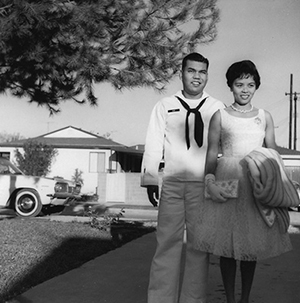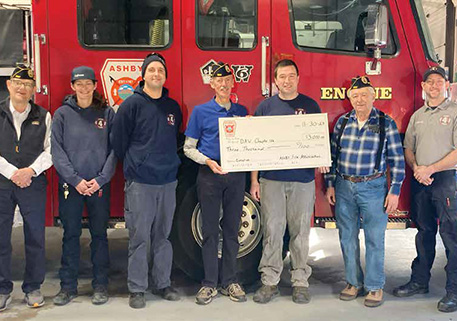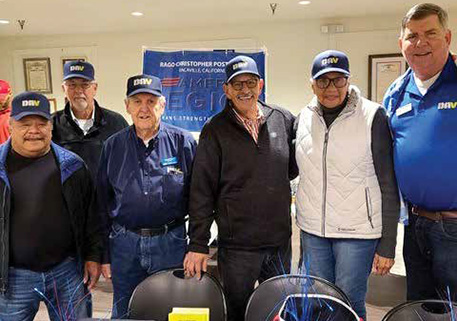
If DAV member Vicente Agor or his wife, Jeanne, gives someone a bag of lemons or a carton of tomatoes, it’s one of their signs of trust and connection with that person.
“They’re giving you something they’ve worked for in the garden, and they want to share it with you,” said their son, Vicente Jr. “So if they’re sharing it with you, you’re in. You’re
a friend. You’re part of the ‘family.’”
The Agors spend a lot of time in the backyard garden of their Southern California home. For the couple, married for 63 years, it’s a place of rest after a lifetime of travel and experiences.
Agor was born in Sarrat, Philippines, in 1930. In the early 1940s, when the Japanese occupied his country, he fled and hid in the rice fields in the mountains for five years. After his return home, he was recruited into the U.S. Coast Guard in 1955 as a steward trainee.
He became a U.S. citizen in 1968 before becoming one of the branch’s first Filipino American chief warrant officers in 1969. After 30 years of service, Agor retired from the Coast Guard; had a second career as a surveyor in Orange County, California; and was later elected as a member of the California State Assembly.
Agor said he and his wife made a decision to give a portion of their appreciated assets to DAV because they believe disabled veterans deserve respect and dignity. The mutual fund shares they worked hard to grow over the years will be used to support the DAV programs and advocacy work that they value.
“It makes a difference for veterans in need,” said Agor. “It’s helping others create a good community and good society.”
Not unlike the harvest from their garden given to others, their choice to gift DAV with a portion of their hard-earned assets is a sign of trust and connection.
“DAV gives disabled veterans a voice,” Agor said. “They are a champion. They allow us to be included, not excluded.”






